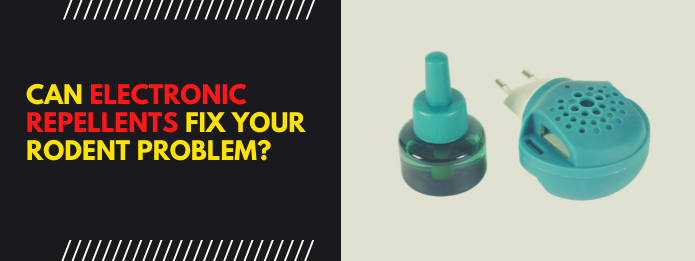 Rodents take shelter in any building containing a food and water source. Although the sighting of a single mouse or rat may not cause alarm, it’s a sign that a more significant problem is lurking out of plain view. Commercial pest control products are readily available for rodent control, and some products rely on ultrasonic sound to drive away the pests. Manufacturers of the devices claim their products are more humane and do not rely on toxic pesticides or traps. However, researchers have found little evidence that ultrasonic devices are effective for pest control.
Rodents take shelter in any building containing a food and water source. Although the sighting of a single mouse or rat may not cause alarm, it’s a sign that a more significant problem is lurking out of plain view. Commercial pest control products are readily available for rodent control, and some products rely on ultrasonic sound to drive away the pests. Manufacturers of the devices claim their products are more humane and do not rely on toxic pesticides or traps. However, researchers have found little evidence that ultrasonic devices are effective for pest control.
How Do Electronic Devices Work?
Electronic rodent repellents produce high-frequency sounds that are unpleasant to rodents and other pests. You can find several different styles and price ranges for the products. Some models plug into the wall, and others are battery or solar-powered. Humans cannot hear the ultrasonic sounds, and they’re designed only to target the pest’s audible range. Although some consumers are concerned that the sounds could harm or annoy their pets, research studies have shown the sounds to have little or no effect on cats and dogs. Insects, rodents and other animals have different audible spectrums, but some electronic repellents claim to work on multiple pests. Some of the creatures the products claim to deter include:- Mice
- Rats
- Roaches
- Ants
- Birds
- Deer
- Rabbits

